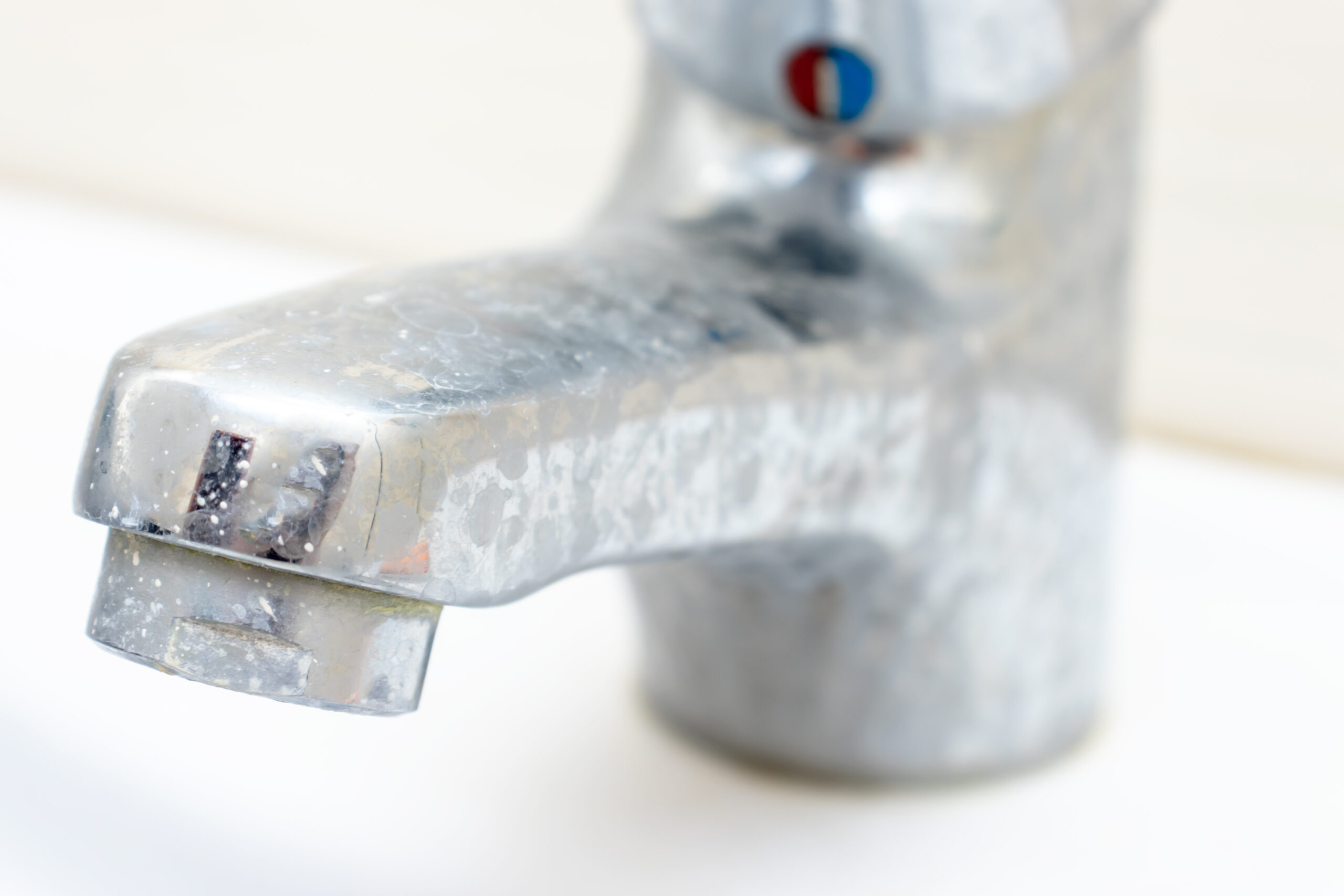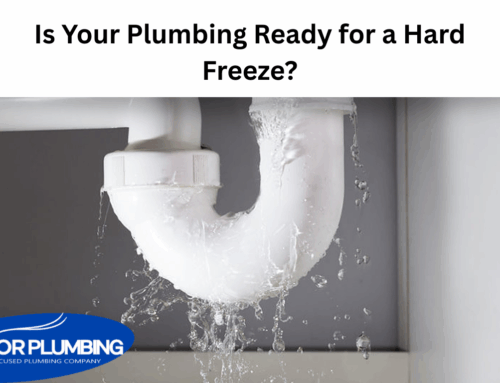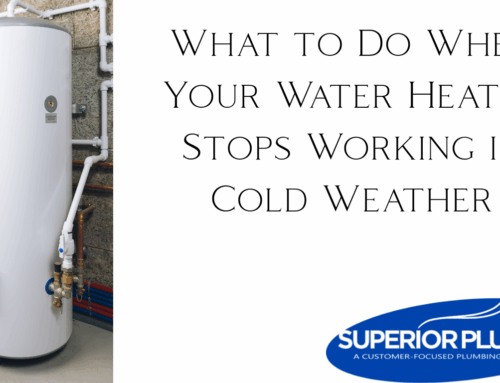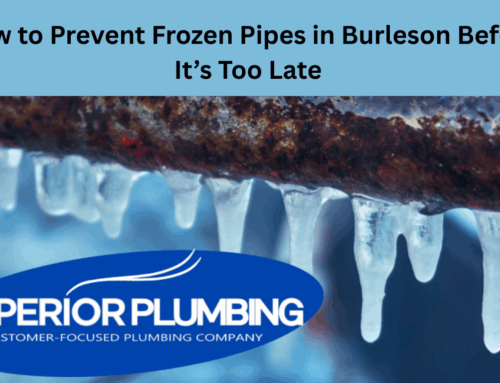Hard water is a common issue in many households, and it can significantly impact the performance and lifespan of your water heater. The effects of hard water on water heater efficiency can lead to higher energy costs, reduced water heating capacity, and costly repairs if not addressed. At Superior Plumbing, we’re committed to helping Burleson, TX homeowners understand how hard water affects their water heaters and what can be done to maintain optimal efficiency.
What Is Hard Water?
Hard water contains high levels of dissolved minerals, primarily calcium and magnesium. These minerals naturally accumulate in water as it travels through soil and rocks, eventually making their way into your home’s water supply. While hard water isn’t harmful to your health, it can cause significant problems for your plumbing system and appliances—especially your water heater.
How Hard Water Affects Water Heater Efficiency
When hard water flows into your water heater, the dissolved minerals begin to settle and form deposits inside the tank. Over time, this mineral buildup—also known as scale—can coat the heating elements or bottom of the tank, reducing the efficiency of the system. Here’s a breakdown of the effects of hard water on water heater efficiency:
- Reduced Heating Efficiency
As minerals accumulate on the heating elements or the inside of the tank, it creates a layer of insulation between the water and the heat source. This forces the water heater to work harder to heat the water, leading to longer heating times and increased energy consumption. The thicker the layer of scale, the more energy your water heater uses, which directly impacts your utility bills.
- Shortened Lifespan
The constant exposure to hard water can also shorten the lifespan of your water heater. Scale buildup not only reduces efficiency but also causes excess wear and tear on the heating components. Over time, the added strain on the system can lead to premature breakdowns and the need for costly repairs or replacements. - Inconsistent Water Temperatures
Another common issue caused by hard water is inconsistent water temperatures. When mineral deposits block heating elements, your water heater may struggle to maintain a consistent temperature, resulting in lukewarm water or longer wait times for hot water. This inconsistency can be frustrating and inconvenient, especially for larger households that rely on a steady supply of hot water. - Increased Maintenance Needs
The effects of hard water on water heater efficiency also lead to the need for more frequent maintenance. If you live in an area with hard water, your water heater requires regular cleaning to remove scale buildup and keep it running efficiently. Neglecting maintenance can cause the heater to fail more often, leading to inconvenient breakdowns and unexpected repair costs.
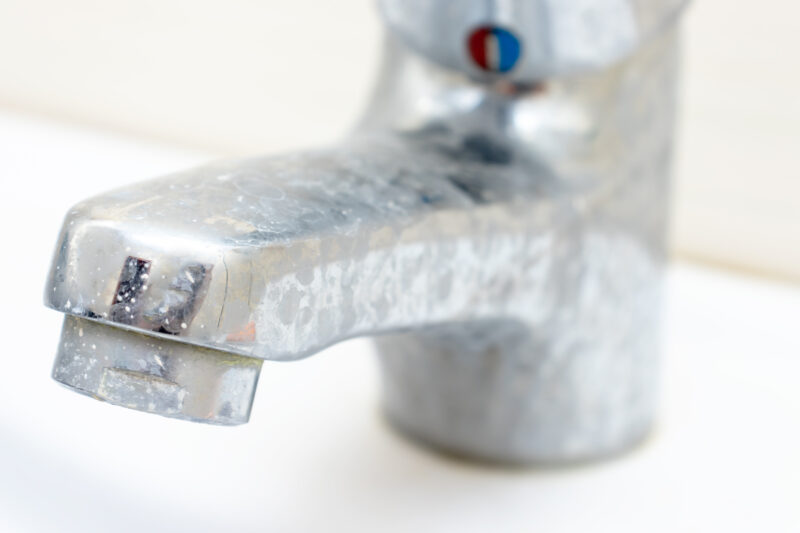
How to Minimize the Effects of Hard Water on Your Water Heater
While you can’t eliminate hard water from your home entirely without installing a water softener, there are steps you can take to minimize its impact on your water heater and maintain efficiency.
- Regular Flushing
One of the most effective ways to combat hard water buildup is by regularly flushing your water heater. Flushing the tank removes sediment and scale deposits, keeping your heating elements free from buildup. It’s generally recommended to flush your water heater once a year, but homes with hard water may benefit from more frequent cleanings. At Superior Plumbing, we offer water heater maintenance services, including flushing and descaling, to help keep your system running smoothly. - Install a Water Softener
A water softener is one of the best long-term solutions for dealing with hard water. By removing calcium and magnesium from your water supply, a softener prevents mineral buildup inside your water heater and other plumbing fixtures. This not only extends the life of your water heater but also improves overall energy efficiency. Our team at Superior Plumbing can help you assess whether a water softener is the right solution for your home. - Schedule Regular Inspections
Routine inspections are crucial for catching problems caused by hard water early. During an inspection, a professional plumber can check for signs of mineral buildup, test the efficiency of your water heater, and make recommendations for maintenance or repairs. Regular check-ups can prevent minor issues from turning into expensive repairs.
Call Superior Plumbing for Water Heater Maintenance
At Superior Plumbing, we understand the challenges hard water presents to your water heater’s efficiency and longevity. Our experienced team provides comprehensive water heater maintenance services for homeowners in Burleson, TX, including flushing, descaling, and inspections to keep your system operating at its best.
By addressing the effects of hard water on water heater efficiency, you can extend the life of your unit, reduce energy consumption, and enjoy consistent hot water when you need it. Whether you need routine maintenance or help choosing a water softener to protect your home, Superior Plumbing has you covered.
Contact Superior Plumbing today to schedule a water heater inspection or maintenance service. Let us help you maintain a more efficient, reliable system and protect your home from the damaging effects of hard water!

